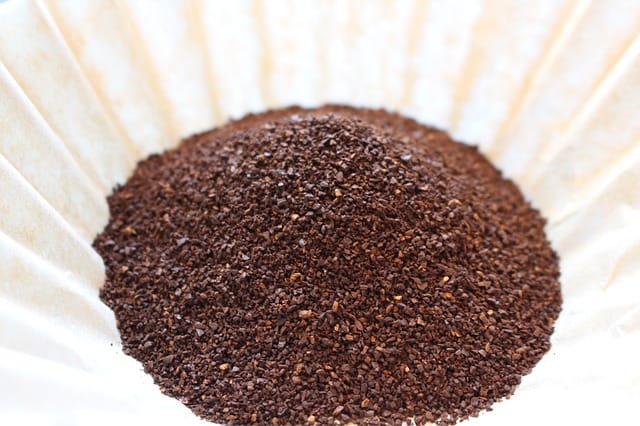Ginseng root tea is good for supporting the overall immune system and for boosting mental and cognitive health. Ginseng root tea has been found to help the physical body regulate and recover at a cellular level.
The rest of this article will look more closely at each of these benefits and what they mean for our general health.
What’s in ginseng root tea that’s so good for the human body?
Researchers believe it’s the ginsenosides, or natural chemical components, in ginseng that are responsible for the beneficial effects of the tea.
The thing about ginsenosides is that they are potent adaptogens; in other words they are a natural substance that helps the body adapt to stress. This is an all-round very valuable attribute.
The study of pharmacological effects of ginseng compounds is ongoing, and although the compounds in ginseng root are extensively studied for their health benefits, there is still little that has been clinically proven about its potential benefits.
How exactly does ginseng root tea help our immune system?
Drinking ginseng has been reported to maintain and balance the immune system, and this is because of those potent adaptogens contained in the ginseng root. This state of balance is known as homeostasis of the immune system.
A balanced immune system is more resistant to illness, less prone to fatigue, and, of course, better able to deal with pressure.
What exactly does ginseng root tea do for our mental health?
It is reported that ginseng has a protective effect on the brain cells. This is beneficial for all cognitive and memory functions.
This feature is also of great interest to professionals studying degenerative brain diseases, such as Alzheimer’s disease.
The neuroprotective effects of ginseng may also be useful in the prevention of depression and anxiety, both of which are associated with degenerative brain diseases.
How does ginseng tea help the body at a cellular level?
It has been suggested that ginseng root tea is good for regulating blood sugar levels and may improve blood circulation. There have also been promising results in blood cholesterol trials.
It is generally agreed that more clinical studies are needed, and there is both widespread and ongoing interest in the results.
Is ginseng root tea good for women?
Ginseng tea is promoted as being good for women because it consistently has soothing effects on menopausal stress.
It has been noted that the herbal components in ginseng tea can help support a woman’s hormones, and that ginseng, as a uterine tonic, is offered as a support female reproductive health.
Ginseng root tea has been used as a fertility herb, mainly because of its power to manage whole body stress.
How long has ginseng root tea been used for its health benefits?
Ginseng has been valued for its health properties since ancient times. China and Korea seem to be the first recorded locations where ginseng root tea was taken on a regular basis and where it gradually became known as a “cure all” or “all healing” tonic.
Ginseng itself was first discovered in the mountains of Manchuria, in China, around 5,000 years ago. Its revitalising powers appear to have been realized some time after its discovery.
How is ginseng tea best prepared to get maximum health benefits?
Follow these simple steps to prepare a drink of ginseng root tea.
- Bring fresh water to the boil.
- Allow it to cool down for 30-60 seconds; don’t use boiling water to make your tea.
- Use about 1-2 teaspoons of prepared ginseng root (powdered) per cup of water.
- Steep the root for about 5 minutes.
If you are making your ginseng tea from the unprepared root, you need to stew the root in water. Add hot water to small pieces of ginseng root and let them sit.. How long you leave the root in the hot water depends on your preferred taste.
How long does it take to feel the benefits of ginseng root tea?
It is generally agreed that ginseng doesn’t need to build up in your body for you to feel its effect. It might take as little as one day or up to two days for you to notice a difference in how you’re feeling.
How soon you notice the effects depends on the kind of ginseng root you’ve used to make your tea and what form you’re using. It will also depend on how often you drink the tea.
Is it possible to have too much ginseng root tea?
It is definitely possible to have too much ginseng root tea. Standard doses of ginseng haven’t yet been established for any medical condition.
The ingredients in ginseng root tea vary from producer to producer, and the quality of ingredients is also inconsistent between products. This makes it hard to establish a standard dose.
It is advised to always buy ginseng from a trustworthy company. Ginseng is an expensive root, so manufacturers might sell it with other things added. Always drink your ginseng tea in moderation, and take note of any side effects, especially if they are adverse.
What are possible side effects of ginseng root tea?
The following undesirable side effects of taking ginseng root tea have all been reported:
- head pain
- disturbed sleep or an inability to sleep
- digestive problems and heartburn
- blood pressure and blood sugar changes
- diarrhea
- rapid heartbeat
- severe skin reaction
- stomach cramps
- nausea
- sweating and breathlessness
Where can I get ginseng root tea?
You can purchase ginseng root tea in health food stores, specialty tea shops, markets and online.
There are several kinds of ginseng root used to make the tea, and there are many different preparation techniques to produce the ginseng root powder.
Summary
Ginseng root tea has long been associated with an array of restorative, protective, and healing properties. Although there are few proven facts about the real effects of taking ginseng root tea, the debates continue unabated, as do testimonies to the wondrous benefits of the tea.
Hi, I’m John Stephens, chief editor and writer for Totalgardener.com. I’ve been gardening and raising animals for over 15 years starting with a small backyard plot in Northern Virginia where I grew corn, potatoes, squash, and using a high mulch technique called the Ruth Stout Method. I also raised ducks and small mammals for meat and eggs in a movable pen similar to the ones used by Joel Salatin. I later moved to Colorado where I experimented with growing greens using aquaponics inside. I eventually added a microgreens setup and home sprouting operation. I’m excited to share everything I’ve learned plus more from the other local gardening and animal raising experts I know.



